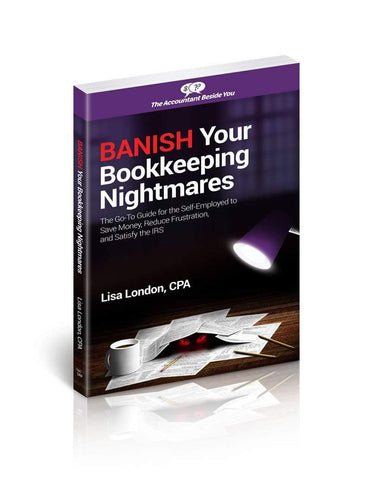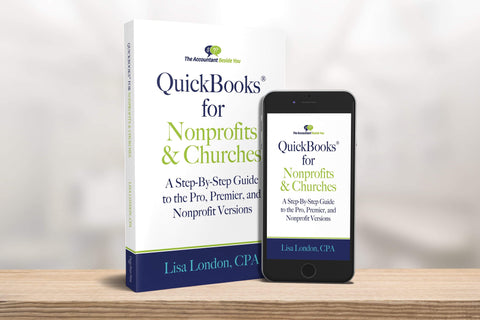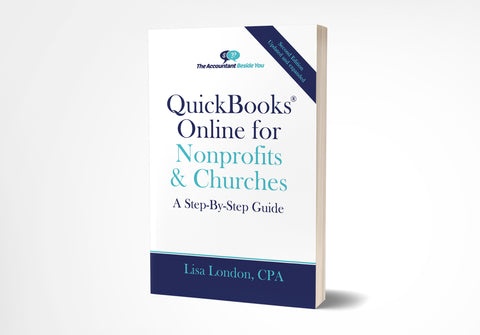The New Tax Reform Act's Impact on the Self-Employed
Did you know that 43 percent of the U.S workforce will do some form of freelancing by 2020? Are you one of these Uber drivers, multi-level marketing distributors, online sellers, or freelancers? The Tax Cuts and Jobs Act (TCJA) has provisions favorable to the self-employed, but many in the gig economy may not qualify if they aren't careful.
The most exciting new provision is a deduction of 20 percent of qualified business income. There are all kinds of caveats that I'll blog about in more detail once the IRS has come out with the regulations and forms, but for now, I want you to be sure you are meeting the requirements. I'd hate for you to miss out on the benefit due to poor recordkeeping.
Eligibility for this 20% deduction is dependent on filing your payroll or self-employment taxes on time, so don't procrastinate. Follow me on Twitter, LinkedIn, or the AccountantBesideYou Facebook page to get reminders the week before, the day before and the day of important tax filing dates.
The new law doubled the standard deduction to simplify tax filings for a large percentage of people, but in doing so, it also eliminated many deductions. Among those eliminated were Hobby Expenses. Before 2018, a side business’ expenses could be deducted up to the amount of income if the taxpayer itemized his deductions. Now, income must still be reported, but the related expenses are only deductible if the IRS would consider your endeavor a business and not a hobby.
There are ten questions the IRS reviews to determine if a business is a hobby or not. I'll summarize them down to three main points:
- Are you running your business like you intend to make a profit?
- Do you keep accurate financials that are separate from your personal accounts?
- Do you have plan to make or keep your business solvent?
Let's take these one at a time. Running your business like you intend to make a profit means not including a bunch of extra expenses that are not necessary and reasonable. Necessary and reasonable are the key determinates of deductibility. The AND is the important part. If the expense is necessary, but not reasonable, it won't be allowed. My favorite example of this is someone who charges by the hour may need a clock to keep track of time (necessary), but to try to deduct a Rolex for this (not reasonable) would not be allowed.
Running your business like you intend to make a profit also means that you spend time and effort on making your business work, even if it isn't your full time job. If your business is also your hobby, i.e. scuba diving, golf, etc. you may have an extra burden to prove you aren't just trying to reduce the cost of your expensive tastes.
For example, if you are a scuba diver who takes people out on your boat on weekends, you need to document the amount of time and money you spend doing the "not fun" part of the job, i.e. scrubbing barnacles, scheduling trips, running ads, etc. If your only "customers" are family members, I'm afraid the IRS will be frowning. If on the other hand, you are working 8-10 hours a day each weekend for the season, have a wide variety of customers, and have more income than expenses, it will be easier to show the business intent.
Next, understand that accurate financials are a must for every business and it is crucial you keep the income and the expenses as separate from your household expenses as possible. Do this by using a separate credit card and opening a business checking account. I also recommend filing for a employer identification number (EIN) and if you hire anyone to help you, be sure to send them a 1099 if you pay them over $600 annually.
The third issue is a plan. If you are currently losing money, can you show how you plan to make money in the future? Do you have a marketing plan? This doesn't mean you have to spend money on advertising, but do you at least know how you will use social media to spread the word? A well-run business has a plan for the future and a related budget. You should do the same.
You can also help prove your goal of a successful business by attending classes, webinars, or conferences to increase your skills.
Don't let sloppy record keeping, late filings, and poor planning keep you from taking all the advantages of the new tax reform. More importantly, running your business well should improve your bottom line.
Happy Accounting!
PS don't forget this April tax filings still use the 2017 rules. For detailed instructions on filing out the forms and what is and isn't deductible, check out Banish Your Bookkeeping Nightmares-The Go-To Guide for the Self-Employed to Save Money, Reduce Frustration, & Satisfy the IRS.




